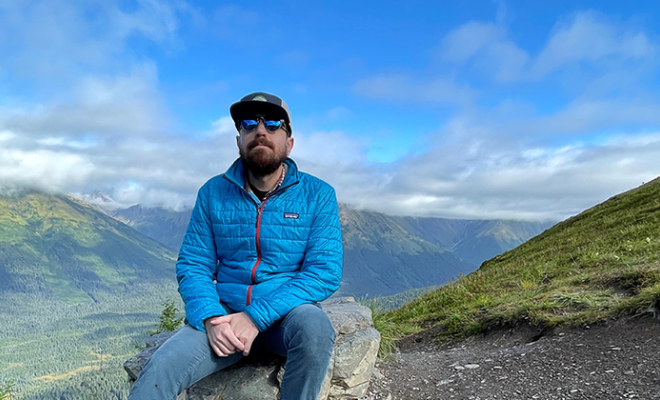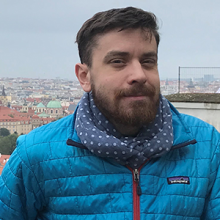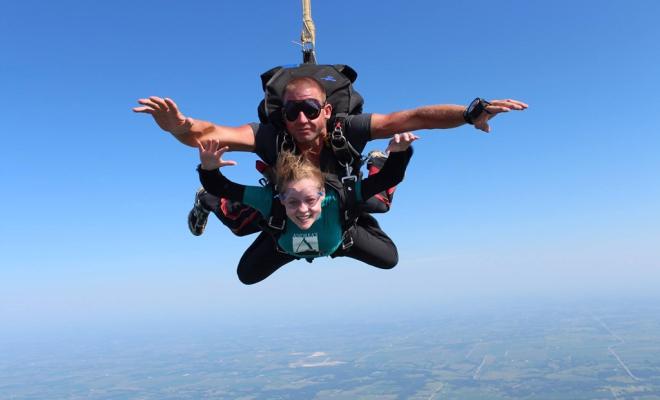Traveling with a chronic disease — especially one that requires as much equipment and medication as cystic fibrosis does — can present unique challenges. With bottles of prescriptions, nebulizers, medication requiring refrigeration, the chest therapy vest, and oxygen, traveling comes with a lot of baggage (pun intended).
In my early years, my parents were the vehicle — both physically and metaphorically — that helped me travel the world. Trips out west and down south from our home in Pittsburgh helped me rack up a significant number of states on my visit list before reaching high school. My early memories of travel include chest physical therapy (PT) — lying on makeshift wedges made from stacks of hotel pillows while my dad would rhythmically clap my chest — and laying sheets at the bases of doors to try to muffle the sound of noisy nebulizer devices before early morning flights.
One theme, however, stuck with me through all the travel as a kid, and that was that I could do anything and that my chronic illness should never slow me down.
When trips in the U.S. graduated to European excursions, I had to learn how to explain medical devices to airport security in Germany, Italy, France, and other nations. This sometimes proved to be a lesson in patience and understanding. Finding storage for my first refrigerated medication, Pulmozyme, added an element of difficulty to the puzzle in some European hotels where in-room refrigerators were not common. Asking the owner or desk assistant to store it in their refrigerator would lead to awkward stares and daily trips to retrieve single doses.
In my younger years, I was fortunate to be predominately healthy. As medications continued to be added to my daily regimen, travel became more difficult as treatments became more complex. The advent of the vest added a twist to travel. The oversized nature of my very first vest made it impossible for the device to accompany me on travel, so I still relied on my parents and their good old chest PT.
My overall condition deteriorated around the time I was able to get a more mobile vest, which was also when I began to travel with my now wife. In May 2015, I was evaluated for a lung transplant and my ability to travel the world — which I loved and had become accustomed to — became more limited. As my stamina deteriorated, I found myself requiring supplemental oxygen, at least three breathing treatments a day, and more frequent hospital visits. Unfortunately, around this time I was also nearing an accomplishment more than 20 years in the making — traveling to all 50 states. With the list down to the last 10, my parents took me on road trips to Louisiana and North Dakota, allowing me to bring all my medical devices along. The trip to North Dakota was nearly cut short in Michigan as I found myself struggling to breathe and walk on level paths. I thankfully was able to recover enough after a few days and we finally made it out to North Dakota. My mom and I opted to fly back from Minnesota while my dad drove home.
My struggle to stay healthy improved slightly after I started modulators for the first time. I was able to go to both Arkansas and Oklahoma with friends to knock out states 48 and 49. One final state remained: Alaska.
Around the time I began to plan the conquest of my final frontier, I received a call that I was eligible to take Trikafta® through compassionate use. My body responded extremely well to the medication, and my lungs became clearer as my forced expiratory volume (FEV1) rose to around 40% for the first time in 10 years. Accompanied by this fortunate turnaround came a devastating blow — COVID. My travel plans were put on hold for 2020 along with the rest of the world. 2021 brought about more understanding of the disease and vaccinations, so I booked a trip to Alaska with my mom, dad, and wife using my refunded airfare from a planned trip to Egypt.
My aspiration of conquering all 50 states came to fruition as we landed in Anchorage days before my 31st birthday. A long sought-after goal was finally achieved but not without some trials and tribulations along the way. This accomplishment was threatened by my struggles with worsening health and a global pandemic. I will always credit this achievement to a solid support system of friends and family who ignited and stoked the fire within me to explore and believe no matter the potential roadblocks.
Visiting all 50 states is a great feat but learning that even though I might have a bit more baggage, I can still accomplish what anyone else can — just in a different way — is a lesson that I can take with me throughout this journey of life.
Here are a few travel tips I can provide from my experiences:
- Always carry a letter from your CF care center listing the medications and devices you will need to bring along with you.
- Pack more than you need for medication in case of flight cancelations.
- Buy adapters or converters for international power outlets.
- Pack snacks for hotels and for taking medication.
- Be patient — airport security is just doing their job so arriving early is always helpful.
- Bring ice packs that can be re-frozen for refrigerated medication transport.
- Wear a mask on the plane.
- Explore early check-in options for hotels after international flights to help keep up with daily treatments.
- Talk to gate agents about your carry-ons. Most, if not all, airlines in my experience do not charge for carry-on bags that only contain medicine or medical equipment.
- Be sure to have fun, be safe, and never stop exploring.
Interested in sharing your story? The CF Community Blog wants to hear from you





